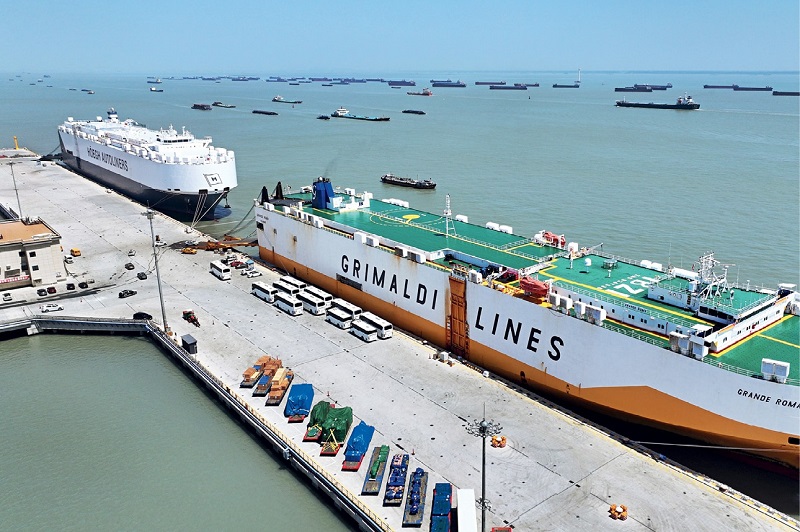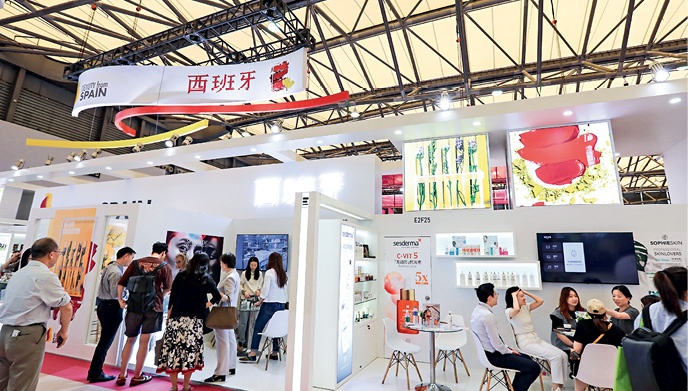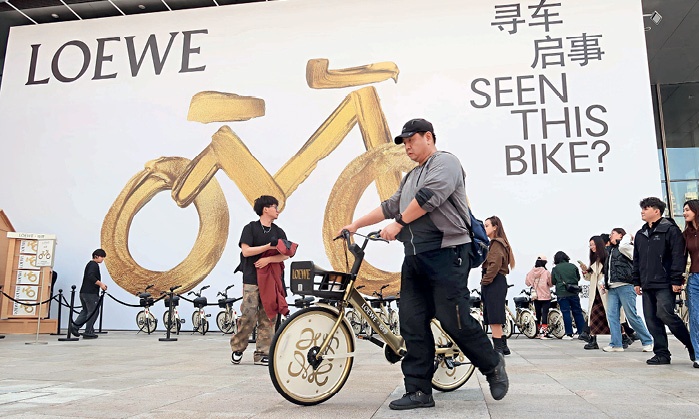Twenty years ago, when the Spain-China Comprehensive Strategic Partnership Agreement was signed, few could have foreseen the profound transformation that this bilateral relationship would undergo. Neither did I envision the transformation I would experience personally. A year after the agreement was sealed, I landed in China with a suitcase full of hope and a grant to stay one year as a business trainee in the Economic Section of the Spanish Consulate in Shanghai. I ended up staying 20 years. During that time, I had the privilege – and the challenge – of helping Spanish and European companies establish and expand their presence in China, witnessing firsthand a laboratory of accelerated change, enormous business opportunities, fierce competition, and profound strategic thinking.
I have learned a lot in two decades of navigating China’s business terrain. But if I had to summarize it for this moment – as Spain and China commemorate 20 years of comprehensive strategic partnership and the EU celebrates 50 years of diplomatic ties with Beijing – I’d say: China is not an enigma to solve; it is a partner to understand. And understanding China is a lifelong exercise in humility, rigor, and adaptation. If learnings are food for the mind, here is my “picnic basket.”

A number of Xiamen King Long buses are loaded onto the roll-on/roll-off vessel to be exported to Spain at the Haitong Automobile Terminal of Taicang Port in Suzhou, Jiangsu Province, on July 5, 2025.
A Laboratory of Global Competition
The first lesson I learned – and keep learning – is patience. Companies that succeed in China are not necessarily the biggest or the most famous. They are the most committed. The likes of Inditex, Cosentino, Freixenet, Alsa, Torres, Gestamp or Grupo Antolín didn’t just “enter” China – they have invested time, talent, energy and trust in the country. They’ve built alliances, adapted their messaging, and studied the codes of a profoundly different market. Success is earned slowly, but failure happens fast (and often). Sociocultural adaptation is paramount.
This is a lesson often ignored by many Western brands that stumbled in trying to crack the Chinese market. They often underestimated the need for cultural intelligence, logistical flexibility, or local partnerships.
China is more than just a market: it’s a gymnasium of global competition. Jörg Wuttke, former president of the EU Chamber of Commerce in China, said it well: “If your company can survive here, it can survive anywhere.” Quite accurately Wuttke has coined the term “China’s Fitness Club” to label such an ultracompetitive, often contradictory, hyperdynamic, and super demanding market. I’ve seen this play out countless times.
Doing business in China is like competing in an Olympic final – surrounded by the best, under the harshest spotlight. You’re measured every day – not only by price or product, but by your ability to adapt, localize, and innovate. It’s the best training ground in the world.

Spanish cosmetics exhibition area at the CBE China Beauty Expo in Shanghai on May 23, 2024.
Knowing What Is Key to China
From the explosive growth of e-commerce platforms like Alibaba and JD.com, to the ubiquity of WeChat ecosystems and frictionless digital payments via Alipay, China leapfrogged legacy systems and built a retail model that’s faster, smarter, and more integrated than anything I’ve seen in the West.
Spanish brands such as Natura Bissé, Isdin, Osborne, Camper, and Suavinex learned how to ride this wave, building direct-to-consumer strategies that bypass traditional distribution chains. For Europe, still tangled in regulatory inertia and fragmented markets, there is much to learn from this model of “digital pragmatism.”
In China, education is not a social policy – it is a national survival strategy. Every year, China graduates more engineers than the U.S., Germany, and Japan combined. The government invests massively in science, technology, engineering, mathematics and vocational training, not just to serve industry, but to lead it.
This is not accidental. China doesn’t wonder if something is capitalist or communist; it asks, “Does it work?” That radical pragmatism is the engine behind its innovation in AI, 5G, renewable energy, and manufacturing automation. Western companies must abandon the idea that “cheap labor” is China’s only asset. Its true edge is talent – disciplined, ambitious, and increasingly homegrown.
China’s government acts like a strategic investor. It plans in five-year cycles and thinks in centuries. Its “Made in China 2025” and “dual circulation” strategies are examples of how state and market co-evolve towards long-term national goals. In contrast, many Western companies – and governments – are trapped in short-termism, political cycles, or quarterly results.
The EU, especially while celebrating 50 years of relations with China, must recalibrate. It’s not about copying China’s model – it’s about recovering our own strategic muscle. Education, planning, and reindustrialization must return to the core of our policy agendas.

A limited-edition golden bicycle jointly launched by Hello Bike and Spanish brand Loewe attracts much attention during its debut in Shanghai on March 1, 2025.
Presence Is Power
Even today, when tensions have risen and some voices advocate for decoupling, I remain convinced of what former Spanish ambassador Eugenio Bregolat often said, “The problem is not China – the problem is not being in China.”
Spain, despite not being a first mover, is now recognized as a reliable and neutral interlocutor. Our “active neutrality,” rooted in pragmatism rather than ideology, has opened doors in trade, education, and investment. Acting within the EU yet with bilateral intelligence, Spain can be a strategic node – a translator of interests, and a builder of bridges.
China’s scale, ambition, and resilience are redefining globalization. The choice for Spain and the EU is not between confrontation and submission – it’s between relevance and irrelevance.
To remain relevant, we must remain present, both in China and Asia. In the arenas where the future is being negotiated, the companies that understand this – that treat China not as a trophy market but as a training ground – will be the ones shaping that future. 
JULIO CEBALLOS is a Spanish business consultant specialized in strategy and market development in China. He is the author of El calibrador de estrellas and has spent more than 20 years advising European companies in the Chinese market.